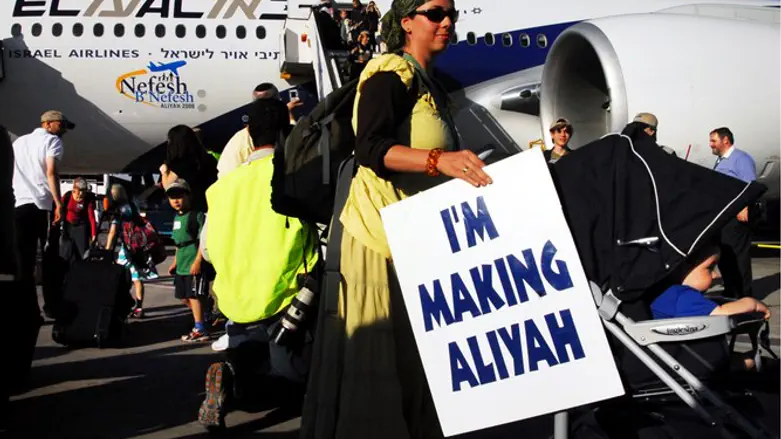
Making aliyah to Israel for singles and young couples from Western nations is typically ideological in nature. Left behind are material comforts, a promising career, a supportive family and community, and good educational opportunities for the children to fulfill that yearning of raising a family in Israel, to be an active part of the vibrant young nation.
Tehila and Dovid spent their first year of marriage in Israel 30 years ago and become so attached to the place that they decided to stay and build their home there. Some of their siblings followed in their footsteps. They raised their eight children here and live close to their own grandchildren, too.
As many have experienced, one of the challenges awaiting immigrants to Israel is the distance from loved ones left behind. No grandmother to call on to pick up a sick child from school or to cook traditional family favorites, no grandfather around to learn parsha with the grandchildren or sit next to them in shul. We try to compensate by frequent trips -- summers at Bubby and Zeydie, Seder night or Succos in Israel. As the children arrived, Tehila's parents would come often to help out.
But as parents age, a new challenge arises. The children have all grown up and are out of the house which suddenly feels so big and needs downsizing. They've retired and have time on their hands. Medical issues need addressing too. They may not be so comfortable behind the wheel anymore. Traveling is not as easy as it once was. And the children are so far away. Tehila began to find herself on the trans-Atlantic route, at first once a year, but over the years with greater and greater frequency. During those short visits she would try to squeeze in all the support and management that under normal circumstances would be spread across weeks and months.
The World Health Organization's Policy Framework on Active Aging states that when policies support active aging, more older people remain independent and enjoy a positive quality of life. For older people, proximity to family members, services, and transportation can mean the difference between positive social interaction and isolation. Tehila and her siblings realized that the time had come to bring their parents to Israel. But where could they build a new life for themselves without being a burden on their children and without losing their independence? What environment would allow them to continue to develop their own personal interests, to flourish, and to establish a social framework of their own at retirement age?
Project Harmony, an innovative model for a high-end retirement community in Ramat Beit Shemesh provides an ideal solution for both parents and children. The warm, close-knit, family-style atmosphere fosters both independence and socializing among the residents. Religious and cultural as well as social facilities abound. Businesses, shopping and medical services are conveniently accessible. Physical proximity to family allows for involvement with the children and grandchildren as well as their love and support. The thrill of city life is nearby, but the freshness of the countryside allows for the quietude so necessary.
A perfect solution for mutual family support and joyous opportunities during the golden years -- Project Harmony.